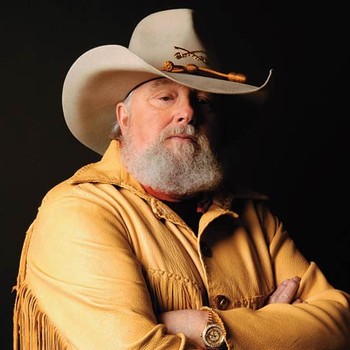|
A&B: Hello Charlie. Ho ascoltato il tuo ultimo album e sono rimasto colpito. Adoro Dylan come autore, non molto come cantante: il tuo album mi ha regalato nuove impressioni e ho potuto sentire quei pezzi storici con rinnovato interesse. Penso che le tue reinterpretazioni rispettino l'autore ma siano anche molto innovative: la tua interpretazione vocale, la devozione per il Southern rock e la musica Country... Sei d'accordo?
Charlie Daniels: Hello Gianluca. Il nostro approccio nel fare questo album è stato quello di allontanarci da qualsiasi arrangiamento dato da ogni altro artista.
Naturalmente, le canzoni risultano abbastanza familiari a tutti coloro che già conoscono il repertorio di Dylan.
Non eravamo molto preoccupati per il genere che saremmo andati a suonare, volevamo soltanto che le nostre versioni riflettessero lo stile e il suono della Charlie Daniels Band.
Si tratta anche del primo e unico album totalmente acustico mai realizzato, utilizzando tutti strumenti acustici, cosa che ha reso questa cosa diversa da qualsiasi altra fatta in passato.
La musica di Bob Dylan è sempre stata speciale per me, poiché ha rappresentato la prima e più importante influenza nel cambiamento e l'evoluzione della musica popolare americana, introducendo uno stile completamente diverso nei testi e un approccio che ha influenzato i musicisti in tutto il mondo.
L'album è un omaggio a Dylan, un riconoscimento ai suoi intenti pionieristici, al modo in cui egli ha liberato la scena musicale americana, rendendo possibile per le persone come me di ampliare i propri orizzonti musicali e perseguire le proprie reali capacità musicali, qualcosa di veramente nuovo, piuttosto che restare in linea con le consuete tendenze di allora, indirizzate ad un pubblico di teenagers.
A&B: Bob ha ascoltato il tuo disco? Ti ha contattato?
Charlie Daniels: Ho parlato con Bob quando il disco era in corso di realizzazione ma lui non ne ha fatto parola né l’ho fatto io. Gli ho inviato il disco consapevole che se avesse voluto parlarne lo avrebbe certamente fatto; in caso contrario, mi ero ripromesso di soprassedere, cosa che si è poi verificata.
A&B: Se non ricordo male, non hai mai suonato il basso in qualsiasi album della Charlie Daniels Band. Circa la tua esperienza con Bob Dylan, perché hai suonato il basso (e non la chitarra o il violino) in tre dei suoi album?
Charlie Daniels: Ho suonato anche la chitarra su "Nashville Skyline" e su una parte di "New Morning". Ero lì a fare tutto ciò che doveva essere fatto per far funzionare i progetti nei quali eravamo coinvolti: mi è stato chiesto di suonare il basso e l'ho fatto, di suonare la chitarra e ho fatto anche quello. Qualunque altra cosa mi avesse chiesto, l’avrei fatta.
A&B: Ci sono altri artisti il cui repertorio vorresti interpretare?
Charlie Daniels: Ce ne sono diversi: Leonard Cohen, Johnny Cash, la Marshall Tucker Band, B.B. King.
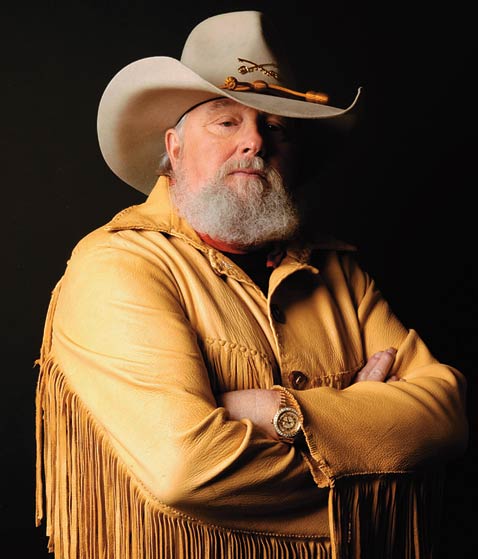
A&B: Sei citato nel famoso pezzo “Gator Country” dei Molly Hatchet ("Charlie Daniels vi dirà che il buon Dio vive in Tennessee...»). In Italia, noi pensiamo che questa cosa è stata possibile perché già all'epoca (stiamo parlando del 1978), tu eri un’icona del southern rock nel tuo Paese. È così?
Charlie Daniels: Non saprei dirti esattamente perché i Molly Hatchet mi abbiano citato in quel pezzo. Penso che fosse il tipo di canzone nella quale venivano messi in comparazione tra loro molti luoghi degli Stati Uniti d’America e le persone che ci vivevano e che li amavano. I Molly Hatchet sono originari della Florida (Gator Country) e, sapendo, che io nutro un amore profondo e costante per lo stato del Tennessee, mi hanno portato come esempio.
A&B: Quale fu la tua impressione quando ascoltasti la canzone per la prima volta?
Charlie Daniels: Onestamente non ricordo ma è un onore essere menzionato nei brani di qualsiasi altro artista.
A&B: Il Volunteer Jam è stato l'annuale concerto della Charlie Daniels Band. Ogni edizione è stata molto importante per il southern rock e la musica country: nel 1979 gli Skynyrds vi si riunirono per la prima volta da quando si era verificato l'incidente aereo del 1977, suonando con diversi membri della tua band. Otto anni dopo, il gruppo vi tornò in scena per la seconda volta. Al momento, una lunga lista di ospiti speciali è apparsa con te su quel palco (la Allman Brothers Band, la Marshall Tucker Band, Stevie Ray Vaughan e molti altri). Lo spirito di questo festival è stato sempre lo stesso o è cambiato nel corso degli anni?
Charlie Daniels: Lo spirito del Volunteer Jam è sempre stato quello di concretizzare un grande evento musicale, con il rinnovarsi di lunghe amicizie nel tempo e il consolidamento di nuove conoscenze. È stata la celebrazione di ogni genere musicale, da BB King a Stevie Ray Vaughan, dalla big band di Woody Herman, al violinista classici Eugene Fodor, da Bill Monroe ai Boys Bluegrass e Pat Boone. Tutto è iniziato con una jam sessions del 1974, quando volevamo registrare due canzoni dal vivo. Da allora, lo spettacolo ha preso subito un corso a sé stante divenendo il Volunterr Jam come lo conosciamo oggi, una vera tradizione nel Tennessee.
Quest’anno, per la prima volta in molti anni, daremo vita ad una nuova edizione, probabilmente con la partecipazione più impressionante di artisti che si abbia mai avuta (QUI maggiori dettagli sulle varie edizioni di questa rassegna).
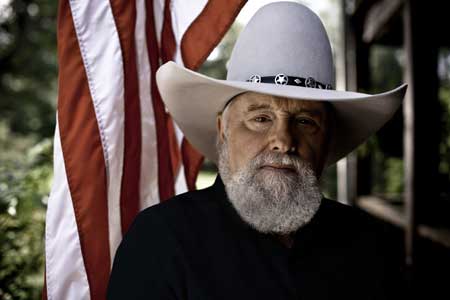
A&B: Ci sono stati artisti che avresti voluto su questo palco ma che poi hanno rifiutato o non hanno potuto suonare?
Charlie Daniels: Naturalmente ci sono stati artisti che sono stati invitati ma che non hanno potuto partecipare per vari motivi, generalmente a causa di impegni precedentemente assunti.
A&B: Vuoi finalmente chiarire la discografia del Volunteer Jam? Il primo disco è stato realizzato nel 1976, mentre i volumi III & IV sono stati raccolti in un doppio disco pubblicato nel 1978. Due anni dopo, sono stati pubblicati due diversi dischi: il volume VI e il volume VII. Un altro capitolo, non numerato, è stato pubblicato in formato 7 pollici, incluso nell’album "Fire On The Mountain". Cosa è successo ai volumi II e V?
Charlie Daniels: Non tutti i Volunteer Jam sono stati stampati su disco mentre alcuni di quelli pubblicati sono oggi fuori catalogo e non sono più disponibili. Furono editi da diverse etichette discografiche che hanno mantenuto il copyright sui master originali. Non è escluso che in futuro possano essere stampate altre versioni di vecchi Live.
A&B: In Italia sei sempre stato indicato come musicista di Country Music. A mio parere si tratta di un errore: la tua musica è così varia e completa: la canzone "No place to go", per esempio, sembra una jam della Allman Brothers Band; nell'album "Full Moon" del 1980, "No potion for the pain" abbraccia il blues più viscerale, "The Legend of Wooley Swamp" è un pezzo di puro southern rock, "El Toreador" cita la cultura messicana mentre sembra di sentire la più ispirata Atlanta Rhythm Section in "Lonesone Boy From Dixie" o gli eleganti Steely Dan in "South Sea Song". Inoltre, le prime due tracce di "Million Mile Reflections" ("Passing Lane" e "Blue Star"), sono puro hard southern, ricordando i Lynyrd Skynyrd o i primi Blackfoot e Molly Hatchet. Sei d'accordo?
Charlie Daniels: Non tendo a categorizzare la mia musica. Non mi dispiace essere indicato come musicista country, rock o qualsiasi altra cosa, ma io stesso, quando mi viene chiesto, dico che suono musica americana, alludendo, con ciò, a tutta la musica che gli Stati Uniti d'America hanno dato al mondo: country, blue grass, jazz, blues, rock e così via. Suoniamo un po’ tutta questa roba, quindi rifiuto le etichettature.
A&B: In alcuni dei tuoi dischi hai suonato brani già apparsi in album precedenti. Ad esempio, la canzone "No place to go" è stata pubblicata sul primo Lp "Honey in the Rock" nel 1973 e in "Fire on the Mountain" di due anni dopo; "Nightrider" contiene "Funky Junky", già pubblicato in "Honey in the Rock". Perché?
Charlie Daniels: Perché no? Una bella canzone è una bella canzone e qualche volta abbiamo ritenuto di poter realizzare un lavoro migliore di quanto fatto in precedenza. Alcune delle nostre canzoni appaiono in nuove versioni su diversi album, in particolare quelli dal vivo in cui ci possono essere due o tre trasposizioni differenti.
A&B: La Charlie Daniels Band non ha mai suonato in Italia. Come mai?
Charlie Daniels: Ci piacerebbe suonare in Italia ma non siamo mai stati invitati.
Ho visitato il vostro Paese di recente, all'inizio di quest'anno e mi è piaciuto molto.
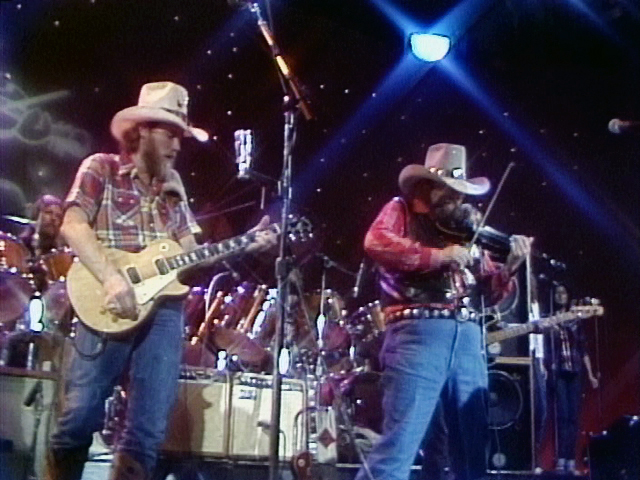
A&B: Pensi Sarà possibile nel prossimo futuro?
Charlie Daniels: Lo spero.
A&B: Grazie per il tuo tempo, Charlie. Ultime parole per i fans italiani e europei?
Charlie Daniels: Spero proprio di venire a suonare qualche giorno da voi. Grazie e Dio vi benedica.
Charlie Daniels
*************************************************************************
ENGLISH VERSION
A&B: Hello Charlie. I listened to your last album and I was impressed. I love Dylan as author, not as a singer: your record gave me new impressions and I could hear those historical pieces with new interest. I think your reinterpretations respect the author but also are very innovative. Your vocal interpretation, your arrangements grace the Southern rock and the Country music. Do you agree?
Charlie Daniels: Hello Gianluca. Our whole approach to doing this album was to stay away from any arrangement or treatment the songs had ever been given by any artist. Of course, the songs themselves are familiar enough for everybody to recognize them as Dylan tunes. We weren't concerned about what genre the songs fell into, just that they would reflect the style and sound of the Charlie Daniels Band. It was also the first and only totally acoustic album we had ever done, using all acoustic instruments which made the it a departure from anything we had ever done.
Bob Dylan's music has always been special to me as I feel he was the first and most important influence in the changing and evolution of American popular music, introducing a totally different style of lyrics and approach which has influenced budding musicians all over the world.
The album is a tribute to Dylan, an acknowledgement for his pioneering and the way that he freed up the American music scene, making it possible for people like me to broaden our musical horizons and pursue our true musical capabilities, doing something new, rather than falling into line with same old trends set by bubble gummers and teen idols.
A&B: Do you know if Bob listened to your record? Did he contact you?
Charlie Daniels: I have talked to Bob since the album release but he didn't mention it nor did I. I sent him the album and felt that if he wanted to bring it up, he would, otherwise I'd just let the subject lie.
A&B: If I well remember, you never played the bass in any album of the Charlie Daniels Band. About your experience with Bob Dylan, why you played bass (and not guitar, fiddle or violin) on "Nashville Skyline", "New Morning", and "Self Portrait"?
Charlie Daniels: I did play guitar on “Nashville Skyline” and part of “New Morning”. I was there to do whatever needed to be done to make the music work and if I was asked to play bass I did so, if guitar I did so, whatever the occasion called for.
A&B: What other artist's repertoire you would like to record?
Charlie Daniels: There are several: Leonard Cohen, Johnny Cash, The Marshall Tucker Band, B B King.
A&B: You're mentioned on the Molly Hatchet's Gator Country ("Charlie Daniels will tell you the good Lord lives in Tennessee. . . "). In Italy, we think it was possible because, at the time (1978), you was yet an icon of Country and Southern genres. Isn't it?
Charlie Daniels: I couldn't tell you exactly why Molly Hatchet used my name in the song except that it was the kind of song comparing other parts of the country and the people who lived in them and loved them to Hatchet's home in Florida (Gator Country). And knowing that I have a deep and abiding love for the state of Tennessee they used me as an example.
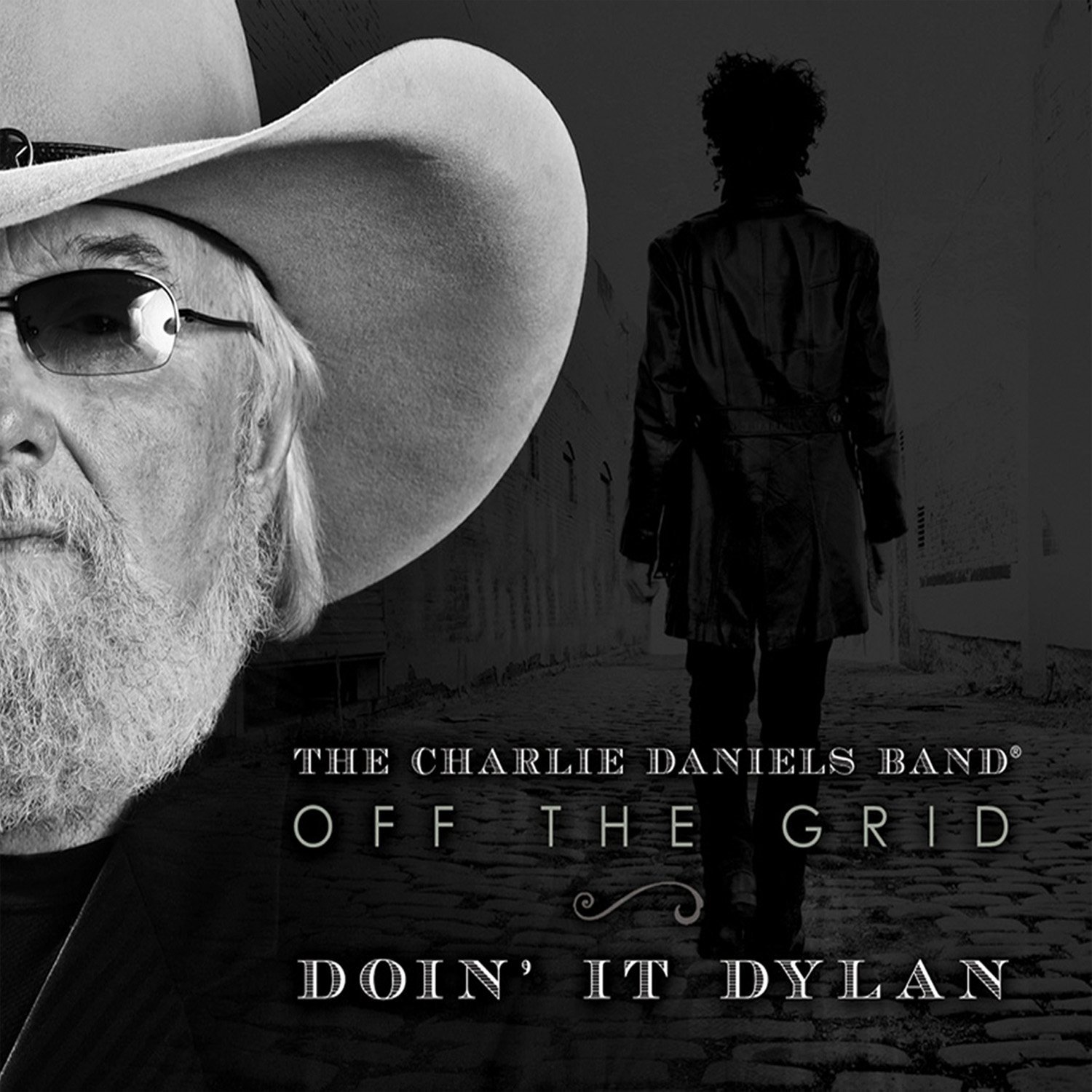
A&B: What's your impressions when you listened to the song for the first time?
Charlie Daniels: I honestly don't remember but it's an honor to be mention in any other artist's song.
A&B: The Volunteer Jam was the annual Charlie Daniels Band concert. Any edition was very important for the Southern Rock and Country Music: in 1979 the Skynyrd reunited for the first time since the 1977 plane crash, with several members of your band at the Volunteer Jam. 8 years after, the group returned for the second time, also at the Volunteer Jam. At the moment, a long list of special guests appearing on stage with you at the Volunteer Jam (featuring The Allman Brothers Band, The Marshall Tucker Band, Stevie Ray Vaughan and many more). The spirit of this festival was always the same or it is changed during the years?
Charlie Daniels: The spirit of the Volunteer Jam has always been that of a gigantic musical party, the renewing of long time friendships, meeting the new people who have come on the scene. A celebration of music of all kinds stretching from B B King and Stevie Ray Vaughn to Woody Herman's big band to the classical violinist Eugene Fodor, from Bill Monroe and the Bluegrass Boys to Pat Boone. It started as a live recording session in1974 when we wanted to record two songs live, No place to go and Orange Blossom Special. The show just took on a life of it's own and Volunteer Jam, a Tennessee tradition was born. We will be doing the Volunteer Jam this year for the first time in many years and the list of artists is probably the most impressive we've ever had. (here more details about the Volunteer Jam festival)
A&B: There were artists you wanted on that stage who refused or cannot play?
Charlie Daniels: Of course there are artists who are invited but can't make it, 'due to scheduling or prior commitments or other reasons.
A&B: Do you want finally clarify the Volunteer Jam discography? The first record was edit in 1976 while Volunteer Jam III & IV is a double record set published during 1978. In the 1980, two different record set: Vol. VI and Vol. Vll. Another chapter, not numbered, was published as 7 inch format, ingluded on the "Fire On The Mountain" LP. Well, what happened to the volumes II and V?
Charlie Daniels: All Volunteer Jams were not released on record and some of the ones which were have gone out of print and are no longer available. They were released on several different record labels and the masters belong to them to re-release, compile or just archive and there could very well be other releases of old Jams as time goes by.
A&B: In Italy you are indicated as a country musicians. In my opinion it is a mistake. Your music is so varied and comprehensive: the song "No place to go", for example, looks like a jam of the Allman Brothers Band; in the album "Full Moon", the song "No potion for the pain" embraces the visceral blues, "The Legend of Wooley Swamp" is a piece of pure southern rock, "El Toreador" cites the Mexican culture while it seems to hear the most inspired Atlanta Rhythm Section in "Lonesone Boy From Dixie" or the elegants Steely Dan in "South Sea Song". In addition, the first two tracks of "Million Mile Reflections" ("Passing Lane" and "Blue Star"), are pure hard southern, remembering Lynyrd Skynyrd or early Blackfoot and Molly Hatchet. Do you agree?
Charlie Daniels: I don't really categorize our music.
I don't mind being called country, rock or whatever but I, myself, when asked I just say we play American music which encompasses the music that America has given to the world, country, blue grass, jazz, blues, rock and so forth.
We play some of all of it, therefore I resist labels.
A&B: In some of your records, you played the same songs yet published on previous albums. For example, the song "No place to go" was published on the first Lp "Honey in the Rock" in 1973 and in "Fire on the Mountain" two years later. "Nightrider" contains "Funky Junky", already published in "Honey in the Rock". Why?
Charlie Daniels: Why not? A good song is a good song and sometimes we feel that we can do a better job of it than we did on the previous recording, so we do it again. Some of our songs appear in different versions on different albums, especially the live ones where there can be two or three different versions.
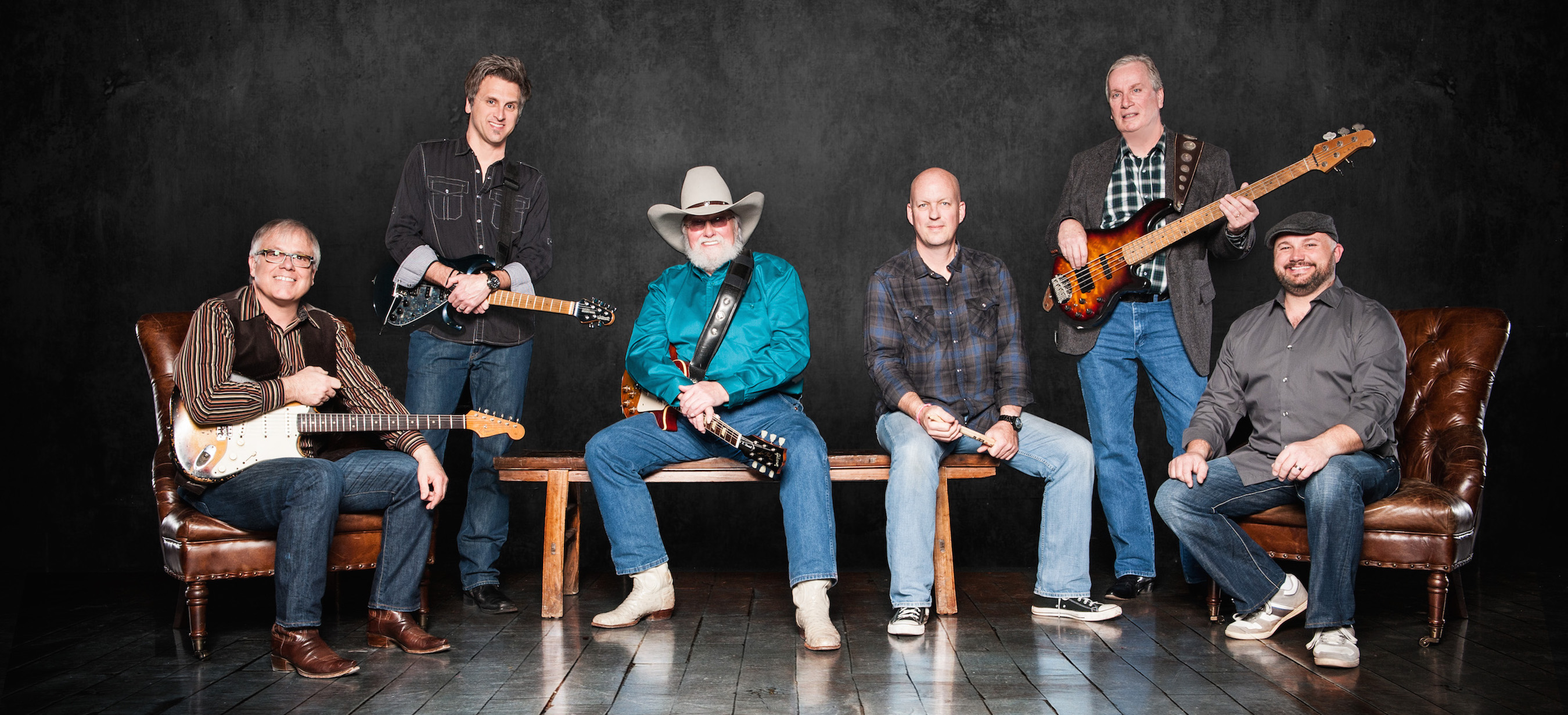
A&B: The Charlie Daniels Band never played in Italy.
Charlie Daniels: We would love to play Italy but we've just never been invited. I've visited there most recently earlier this year and enjoyed it immensely.
A&B: Do you think It will be possible in the next future?
Charlie Daniels: Hopefully
A&B: Thanks for your time, Charlie. Last words for the Italian and Europenas fans?
Charlie Daniels: Yes, we'd love to come and play for you some day.
Thanks and God bless.
Charlie Daniels
|






